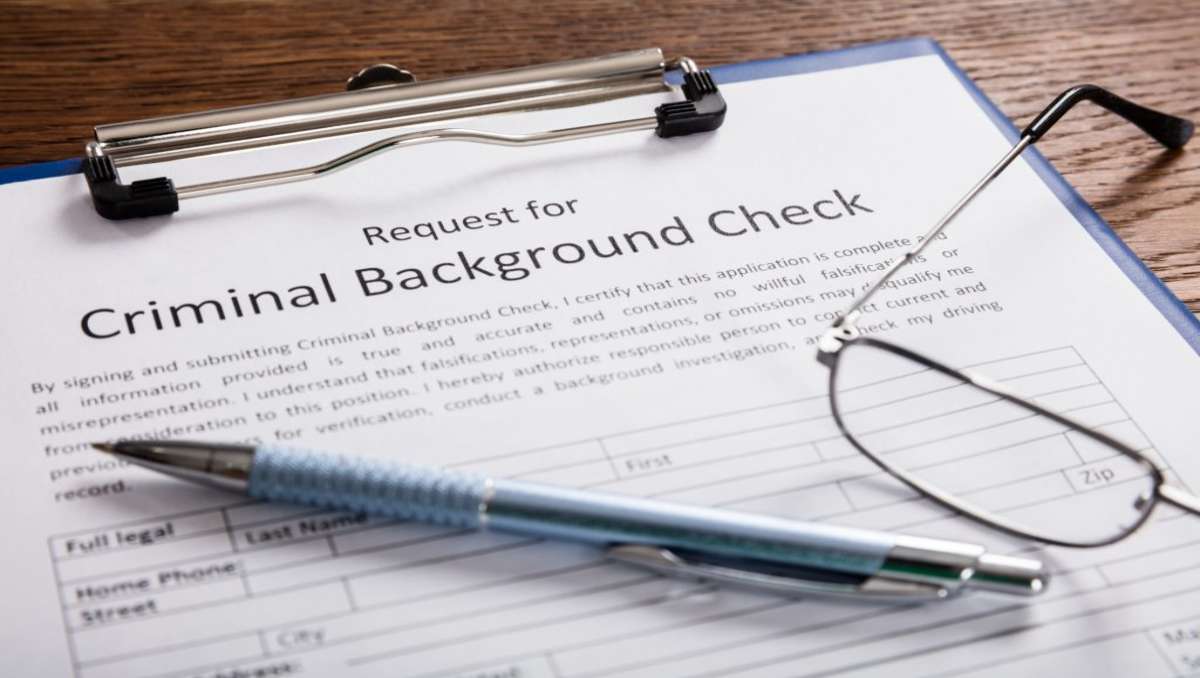Did you know that nearly 80% of landlords conduct background checks on potential tenants? That’s right; most landlords want to ensure they rent their apartments to trustworthy individuals. Understanding what charges can stop you from getting an apartment is crucial to securing a place to call home.
Several charges can stop you from getting an apartment, including felony convictions, particularly those related to violent, financial, or drug offenses, as landlords often conduct background checks and may deny applications based on these convictions.
In this article, we will explore the types of charges that landlords often consider deal-breakers, factors that influence their decision-making process, and how you can overcome a criminal record when applying for an apartment.
The Role of Background Checks in Rental Application
Any questionable charges on your record can be like a red flag waving in front of potential landlords, making it difficult to secure an apartment. Background checks are crucial in the rental application and can significantly impact approval rates.

Landlords often use these checks to assess an applicant’s trustworthiness and reliability as a tenant. However, it’s essential to understand that individuals with criminal records still have legal rights regarding the rental application process.
The Fair Housing Act prohibits discrimination based on criminal records, ensuring everyone has an equal opportunity to find suitable housing. Landlords must consider each applicant individually and cannot automatically reject someone solely based on their criminal history.
Unfortunately, there is still potential for discrimination based on criminal records in the rental market. Some landlords may have biases or stereotypes about individuals with past convictions, which can lead to unfair treatment during the application process.
Types of Charges That Can Stop You From Getting An Apartment
Legal felony charges and other records can both be factors that may prevent you from getting an apartment. Landlords often conduct background checks to ensure the safety and security of their property and other tenants, so having a history of felony charges can raise concerns.
Legal Felony Charges:
If you’ve been charged with drug-related offenses, violent crimes, or financial crimes, it may significantly impact your ability to secure an apartment. Landlords often conduct background checks on potential tenants and are wary of individuals with a history of these charges.

Drug-Related Offenses
You must know that drug-related offenses may prevent you from securing an apartment. The impact of these charges on housing stability is significant, as many landlords are hesitant to rent to individuals with criminal records. Specific drug-related offenses that can potentially impact your ability to secure an apartment can include:
- Drug Trafficking
- Drug Manufacturing
- Drug Possession with Intent to Distribute
- Drug Paraphernalia
- Drug-related Probation Violations
While rehabilitation programs can help individuals overcome their past, the stigma surrounding drug-related charges lingers in rental applications. However, it’s important to note that housing options are still available for those with drug-related offenses, and community support plays a crucial role in successful reintegration after such charges.
Violent Crimes
The impact of violent crimes on housing stability can be devastating. Landlords are hesitant to rent to individuals with a history of such offenses. Specific violent crimes that can potentially impact your ability to secure an apartment may include:
- Assault
- Battery
- Domestic Violence
- Robbery
- Homicide
- Kidnapping
Rehabilitation and reentry programs support individuals after release and reduce recidivism rates. However, individuals with criminal records still face challenges due to housing discrimination.
Financial Crimes
When landlords conduct background checks as part of the rental application process, they often look for fraudulent activities or theft history. Specific financial crimes that can potentially impact your ability to secure an apartment may include:
- Identity Theft
- Credit Card Fraud
- Embezzlement
- Forgery
Financial crimes can severely damage your chances of finding suitable housing options and may result in an eviction history that affects future applications.
Other Records:
To rent an apartment, you must know certain records that could affect your application. Landlords often consider these factors when determining whether or not to approve a potential tenant, so it’s crucial to understand the implications they may have on your ability to secure housing.

Sex Offenses
Sex offenses can significantly affect your ability to secure an apartment. Still, the impact may vary depending on the nature and severity of the offense, local laws, and individual landlord policies. Sex offenses do not automatically disqualify you from getting an apartment but can pose significant challenges.
Landlords are often concerned about the safety and well-being of their tenants, so they may be hesitant to rent to individuals with a history of sex offenses, especially those involving crimes against minors or sexual violence.
Many states require sex offenders to register in a public registry, further complicating the rental market. Discrimination against sex offenders is prevalent, making it difficult for them to find suitable housing options.
Eviction History
Having an eviction history can make it more challenging to secure an apartment, but it does not necessarily guarantee an automatic rejection. The impact of an eviction history on your ability to rent depends on various factors.
Firstly, the severity and frequency of the evictions play a role; landlords may be more lenient if the eviction was for a one-time issue or a minor violation, compared to multiple evictions or a history of repeated late rent payments.
Secondly, the time that has passed since the eviction matters; the longer it has been, the less impact it may have on your rental application. Recent evictions are typically more concerning to landlords than older ones.
Misdemeanors
Misdemeanors can impact your ability to secure an apartment but do not necessarily lead to automatic rejection. The influence of a misdemeanor on your rental application largely depends on various factors, including the nature and severity of the offense, local laws and regulations, and individual landlord policies.
For less serious misdemeanors, such as disorderly conduct or public intoxication, some landlords may be more lenient and consider other factors in your application, such as your rental history, credit score, and references.
However, more severe misdemeanors, like theft or assault, can raise concerns for landlords, especially if they believe these offenses may risk the safety and well-being of other tenants or property.
Factors That Landlords Consider When Evaluating Criminal Records
When evaluating a criminal record, landlords consider several vital factors.

#1 The nature of the offense
For instance, if you were convicted of arson and are applying for an apartment with a strict no-fire policy, your chances of getting approved may be slim. Landlords want to ensure their tenants and property’s safety and well-being, so they carefully evaluate criminal records before approving applications.
Offenses that involve violence, theft, or property damage can raise concerns about potential risks to other residents or the property itself. Landlords prioritize all tenants’ security and peace of mind when considering applicants with criminal records.
#2 How long ago the offense occurred
Consider the time since the offense happened, as it can significantly impact your chances of being approved for a lease. Landlords consider the offense timeframe’s relevance when evaluating rental applications.
If the offense occurred years ago, it may be seen as less significant compared to recent incidents. This is especially true if you’ve actively participated in rehabilitation programs or shown evidence of personal growth and change.
#3 Whether you were convicted or acquitted
Landlords often review an applicant’s criminal history to assess their trustworthiness and potential risk as a tenant. If you were convicted of a serious offense, such as violent crimes or drug-related charges, it may raise concerns for the landlord regarding the safety and well-being of other residents.
However, if you’ve completed rehabilitation programs, demonstrated steady employment opportunities, received housing assistance, and gained community support, this can work in your favor.
#4 Whether you have completed any rehabilitation programs
Rehabilitation success stories demonstrate the transformative impact on individuals seeking housing. Unfortunately, discrimination against rehabilitated individuals still exists, making it challenging for them to find suitable apartments.
However, housing programs are designed explicitly for rehabilitated individuals who provide support and assistance in finding stable housing. These programs understand the challenges faced by this population and work diligently to ensure they have access to safe and affordable homes.
#5 Your current employment status and income
If you’re currently employed and have a steady income, it can significantly increase your chances of finding an apartment that suits your needs. Landlords value job stability and a regular paycheck during the rental application process.
Landlords may request recent pay stubs or employment verification letters to confirm your earnings as part of the income verification process. Self-employment can also be considered as a source of income, but it might require additional documentation such as tax returns or bank statements to prove stability.
#6 Your rental history
When you apply for an apartment, landlords often conduct background checks to assess your suitability as a tenant. They scrutinize your rental history to see if any red flags may indicate potential problems in the future.
Evictions, late rent payments, or damage to previous properties can all raise concerns and make it difficult to secure housing options. Maintaining a positive rental history is crucial to avoid this hurdle. Always pay your rent on time and adhere to the terms of your lease agreement.
#7 Your references
Regarding the rental application process, your references are crucial in determining whether you’ll be approved for an apartment. Landlords rely on these references to gain insight into your character, reliability, and ability to pay rent on time.
If you’ve had difficulties that may have impacted your rental history, such as late payments or eviction notices, it’s essential to address these issues honestly with your potential landlord. Overcoming obstacles and demonstrating growth can help alleviate concerns and show that you’re committed to being a responsible tenant.
Landlord Discretion and Local Laws
In hunting felony-approved apartments, it’s essential to recognize that landlords often possess a significant degree of discretion when choosing tenants. While certain charges, such as felony convictions or a history of eviction, may raise red flags, landlords also have the flexibility to consider other factors and exercise their judgment.
Each landlord may establish their tenant screening criteria, leading to variability in their decision-making process. Some may be more forgiving of certain offenses if you can demonstrate rehabilitation efforts or a responsible rental history. Others may have strict policies against renting to individuals with any criminal record.
Local laws and regulations also play a significant role in tenant screening. Different jurisdictions have varying rules governing the tenant screening process.
Some jurisdictions have implemented “ban the box” laws that restrict the timing and extent of criminal background checks, while others have specific guidelines for considering criminal records in housing decisions. For both landlords and tenants, it’s crucial to be aware for each of their rights and responsibilities.
How to Overcome a Criminal Record When Applying for an Apartment
When applying for an apartment with a criminal record, being honest and upfront about your past is crucial. A written explanation of your record and emphasizing why you would make a good tenant can also help improve your chances.

1. Be honest and upfront about your criminal record.
Being honest and upfront about any criminal record is crucial to increase your chances of getting an apartment. It shows integrity and a willingness to take responsibility for your past actions.
When discussing your criminal record with potential landlords, it’s important to emphasize the steps you have taken toward rehabilitation. Acknowledge the social stigma that individuals with criminal records face, but also mention discrimination laws that protect your rights as a tenant.
2. Provide a written explanation of your criminal record and why you are a good tenant.
One key to increasing your chances of securing an apartment is explaining your criminal record, highlighting why you’d make a great tenant, and exemplifying the phrase ‘actions speak louder than words.’
Start by discussing any rehabilitation programs you’ve participated in and how they’ve positively impacted your life. Emphasize the importance of employment stability and how having a steady job can outweigh a criminal record. Include positive references from reputable individuals who can vouch for your character.
3. Get a co-signer.
To enhance your chances of securing an apartment, consider obtaining a co-signer who can verify your reliability and bolster your application. The co-signer reassures landlords that if you cannot pay rent or fulfill other obligations, they will step in and cover those costs.
When searching for a reliable co-signer, choose someone with a good credit history and steady income. It’s important to understand that they’re taking on legal and financial responsibilities by agreeing to be your co-signer. They’ll be held accountable if you fail to meet your obligations.
4. Offer to pay a larger security deposit.
If you’re willing to put down a larger security deposit, it can demonstrate your financial stability and commitment to the landlord.
Landlords often use security deposits to protect themselves financially in case of any damages or unpaid rent. By offering more money upfront, you show that you take your responsibilities seriously and are committed to maintaining the property.
Housing Options for People With a Criminal Record
A criminal record can severely limit your housing options, leaving you trapped and excluded. However, housing options are still available for individuals with a criminal record.

Housing grants for felons can vary depending on the individual’s location and specific circumstances. One of the most well-known housing assistance programs in the United States is Section 8, the Housing Choice Voucher Program.
Section 8 provides rental subsidies to eligible low-income individuals and families, including those with criminal records, including felons.
While Section 8 does not have specific eligibility requirements related to criminal convictions, individual public housing authorities (PHAs) that administer the program may have their policies regarding applicants with criminal records.
Some PHAs may consider factors such as the nature and severity of the offense, the time that has passed since the conviction, and evidence of rehabilitation when determining eligibility.
Some states and localities also offer reentry programs or nonprofit organizations that provide housing assistance and support services to individuals with criminal records, including felons.
Navigating the Roadblocks to Rental Success
In conclusion, understanding the charges that can potentially affect your ability to secure an apartment is essential in navigating the rental application process. While certain charges, such as felony convictions, drug-related offenses, or a history of eviction, may raise concerns for landlords, it’s important to recognize that there is no one-size-fits-all answer.
In the end, while certain charges may present challenges, with determination, proactive measures, and knowledge of the rental landscape, finding suitable housing and taking steps toward a secure living situation is possible.

